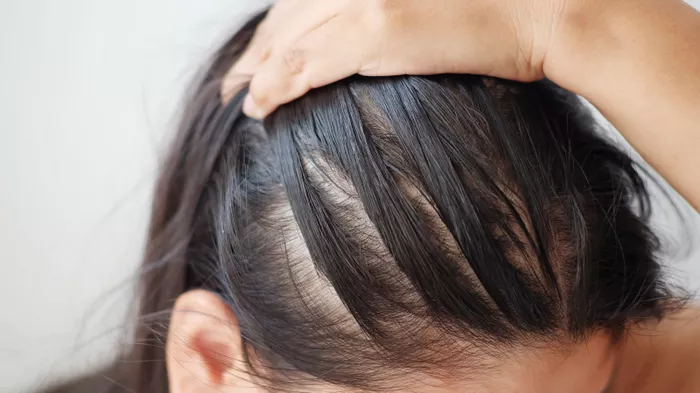Diffuse alopecia areata is a condition characterized by sudden and widespread hair loss, which can be distressing for those affected. This article delves into the nature of diffuse alopecia areata, the typical duration of the condition, and the various factors that can influence its course.
What is Diffuse Alopecia Areata?
Alopecia areata is an autoimmune disorder that causes hair to fall out in small, round patches. When this condition occurs diffusely, it means that the hair loss is widespread across the scalp rather than being confined to discrete patches. This form of alopecia can be particularly alarming because the hair thinning is more generalized, often leading to a significant reduction in hair density.
Symptoms of Diffuse Alopecia Areata
- Sudden hair thinning across the entire scalp
- Hair may fall out in clumps
- Scalp may appear visibly sparse
- No scarring or redness on the scalp
Diagnosis
Diffuse alopecia areata is diagnosed through clinical evaluation, which may include a thorough medical history, physical examination, and sometimes a scalp biopsy to rule out other causes of diffuse hair loss, such as telogen effluvium or androgenetic alopecia.
The Duration of Diffuse Alopecia Areata
How Long Does Diffuse Alopecia Areata Last? The duration of diffuse alopecia areata can vary widely from person to person. In general, the course of the condition can be categorized into three stages:
1. Acute Phase: This initial stage involves the sudden onset of hair loss, which can last for several weeks to a few months. The rate of hair loss can be rapid, and the extent of thinning can be quite significant.
2. Stabilization Phase: After the acute phase, hair loss often stabilizes. This phase can last from several months to over a year. During this time, the rate of hair loss decreases, and some individuals may begin to see signs of hair regrowth.
3. Recovery Phase: In this final stage, hair regrowth becomes more noticeable. The duration of the recovery phase can vary, with some individuals experiencing significant regrowth within a few months, while for others, it may take a year or longer.
Factors Influencing the Duration
Several factors can influence how long diffuse alopecia areata lasts, including:
1. Severity of Hair Loss: Individuals with more extensive hair loss may experience a longer duration before seeing significant regrowth.
2. Immune System Activity: Since alopecia areata is an autoimmune condition, the activity of the immune system plays a crucial role. Fluctuations in immune system activity can impact the duration of the condition.
3. Treatment: The type and effectiveness of treatment can significantly influence the duration. Some treatments may expedite the stabilization and recovery phases.
4. Overall Health: General health, including factors such as stress levels, nutrition, and underlying medical conditions, can affect the course of diffuse alopecia areata.
Treatment Options for Diffuse Alopecia Areata
There are various treatments available for diffuse alopecia areata, which aim to reduce hair loss and promote regrowth. The choice of treatment depends on the severity of the condition, the individual’s response to previous treatments, and any underlying health conditions.
Topical Treatments
Corticosteroids: These anti-inflammatory medications can be applied directly to the scalp to reduce inflammation and suppress the immune response that contributes to hair loss.
Minoxidil: Commonly known as Rogaine, minoxidil can help stimulate hair growth and slow down the rate of hair loss.
Oral Medications
Corticosteroids: Oral corticosteroids may be prescribed for more severe cases to reduce inflammation and immune system activity.
Immunosuppressants: Medications such as methotrexate or cyclosporine can help manage the immune response, though they are typically used in more severe cases due to potential side effects.
Other Treatments
Platelet-Rich Plasma (PRP) Therapy: This treatment involves injecting platelets from the patient’s own blood into the scalp to stimulate hair growth.
Light Therapy: Also known as phototherapy, this treatment uses ultraviolet light to reduce inflammation and promote hair growth.
Alternative Therapies: Some individuals find relief with alternative treatments such as acupuncture, though more research is needed to confirm their effectiveness.
See Also: How to Prevent Hair Loss While Sleeping: A Comprehensive Guide
Psychological Impact and Coping Strategies
The psychological impact of diffuse alopecia areata can be profound, affecting self-esteem, body image, and overall quality of life. It’s essential to address these emotional aspects and adopt coping strategies to manage the condition effectively.
Psychological Support
Counseling: Speaking with a therapist or counselor can help individuals cope with the emotional impact of hair loss.
Support Groups: Joining support groups, either in-person or online, can provide a sense of community and shared experiences.
Practical Coping Strategies
Hairstyling Tips: Working with a hairstylist to find styles that minimize the appearance of thinning hair can boost confidence.
Head Coverings: Wigs, scarves, and hats can be stylish and practical options for those experiencing significant hair loss.
Mind-Body Practices: Techniques such as meditation, yoga, and mindfulness can help manage stress, which can be a contributing factor to hair loss.
Prognosis and Long-Term Outlook
The prognosis for diffuse alopecia areata varies. While some individuals experience complete regrowth and long-term remission, others may have recurrent episodes of hair loss. Understanding the factors that influence the condition and seeking appropriate treatment can improve the chances of a favorable outcome.
Long-Term Management
Regular Follow-Up: Regular check-ups with a dermatologist can help monitor the condition and adjust treatment as needed.
Lifestyle Modifications: Maintaining a healthy lifestyle, managing stress, and addressing any underlying health conditions can support overall well-being and potentially reduce the risk of recurrence.
Education and Awareness: Staying informed about the latest research and treatment options can empower individuals to make informed decisions about their care.
Conclusion
Diffuse alopecia areata is a complex and often unpredictable condition. The duration can vary significantly, influenced by factors such as the severity of hair loss, immune system activity, treatment effectiveness, and overall health. While the condition can be challenging to manage, a combination of medical treatments, psychological support, and practical coping strategies can help individuals navigate their journey with diffuse alopecia areata and improve their quality of life.


